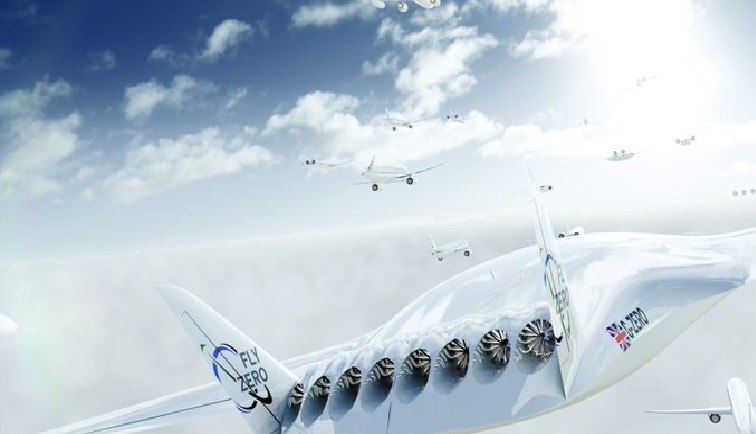UK’s ATI Unveils its Green Liquid Hydrogen Airliner, FlyZero to Operate by 2030
Conversations around climate change have become a run-of-the-mill matter over the last few decades. Al Gore is no longer the only champion and advocate for climate-related causes. In recent times, there has been an element of urgency to sustainability issues, causing world leaders at the COP26 meeting, for example, to make pledges prioritizing the welfare of the environment. The meeting ended with many commitments to making significant changes by 2050.
The British government is particularly passionate about securing a green future for its citizenry. Towns like Teesside and Mansfield have become hotspots for developing climate change mitigation technologies. The Prime Minister recently shared a Ten Point Plan for a Green Industrial Revolution that would see the entire country living an environmentally friendly lifestyle.
Point six of the PM’s plan pertains to the greening of the transportation industry, particularly airplanes and ships. The Aerospace Technology Institute (ATI) and the Jet Zero Council are key players at this point of the plan. Transport Secretary Grant Shapps, who chairs the Jet Zero Council, believes that environmental sustainability goals must be central to the British aviation industry’s coronavirus recovery strategy.
The Institute is responsible for creating tech-based strategies to meet the UK’s aviation needs. In collaboration with the Jet Zero Council, the ATI recently revealed a new concept aircraft designed to help the industry achieve net-zero emissions. The concept craft, FlyZero, is an airplane that will run on liquid hydrogen instead of old-fashioned fuel.
The FlyZero will be able to carry 279 passengers on a round-the-world trip making only one stop to top up the fuel tank. Projected to have a range of 5250NM, FlyZero will connect London to destinations such as Vancouver (4105NM) and Rio de Janeiro (4983NM).
The lightweight nature of liquid hydrogen makes it possible for FlyZero to reduce the number of layovers ordinarily associated with long-haul flights. Additionally, hydrogen’s lightness, coupled with the fact that it has triple the energy output of kerosene, means the element is ideally placed to be an efficient substitute for fossil fuels.
Seeking fuel alternatives is crucial because scientists have discovered a link between greenhouse gas emissions and the fumes that come from airplanes. As they move about the skies, flying hither and thither, airplanes release clouds of impurities. The combination of these clouds and the colder temperature in the skies often results in condensation that makes significant detrimental contributions to climate change.
Various businesses are prioritizing climate sustainability measures in their daily operations. The proliferation of net-zero emission investments and technologies proves this fact. The Tesla Model 3, for example, is becoming popularized amongst emergency service departments and police departments in the UK and the US. The electric vehicle exemplifies net-zero emission technology at its finest, requiring no gas and very little maintenance.
As demand for carbon-cutting products increases, costs will decrease, resulting in benefits all along the supply chain. Additionally, this would increase the appetite for a future free of carbon emissions. Environmental, social, and governance (ESG) investment products are increasingly popular in the financial services sector. Forward-thinking companies would do well to actively develop ESG portfolios for investors who would like to financially support climate change initiatives.
Frankly, the world needs more options for zero-carbon transportation. Liquid hydrogen fuel is a lucrative and sustainable solution to the carbon emission problem in the transportation industry. The Jet Zero Council is desirous of achieving zero-emission transatlantic flights in this generation. To this end, it will publish more information about FlyZero in the first quarter of 2022. The report will include additional aircraft concepts, as well as sustainability assessments. The hope is that FlyZero can begin operating as soon as 2023.
As global warming and other climate change-related effects are being taken more seriously, it is heartening to see that small beginnings are being made with non-stop flights from locations that are ordinarily wearying to seasoned travellers.

